New Scientist covers the latest developments in science and technology that will impact your world. New Scientist employs and commissions the best writers in their fields from all over the world. Our editorial team provide cutting-edge news, award-winning features and reports, written in concise and clear language that puts discoveries and advances in the context of everyday life today and in the future.
Elsewhere on New Scientist
Shoot for the moon • We should return to the moon not to escape Earth, but to learn to live better back home
New Scientist
New York battles polio • A state of emergency has been declared to boost vaccination efforts after poliovirus was found in sewage samples, reports Grace Wade
Self-replicating ribosomes are a step towards artificial life
One mutation may make us smarter than Neanderthals
Massive satellite could outshine all the stars and planets in the night sky
Quantum diamond used to measure neural activity
Google AI can tell what something smells like from its molecular structure
Juno prepares for close encounter with icy moon Europa
Studies of mice and men go awry • Mice are more stressed when handled by male experimenters than female ones, and the sex of researchers can influence the results of mouse experiments, reports Jonathan Moens
Climate tipping points loom closer • Runaway processes such as collapsing ice sheets and thawing permafrost are likely to be triggered if we breach even the 1.5°C temperature goal, reports Adam Vaughan
California set for big increase in extreme wildfires
Europe’s drought will lead to a huge wave of tree deaths
Analysis Climate change • Why have we seen so many heatwaves in 2022? As well as China having the worst heatwave in history, many other places have smashed records. Michael Le Page investigates
Two potentially habitable super-Earth planets spotted orbiting red dwarf star
Trick makes objects seem heavy or light in virtual reality
Pine marten in the city • The elusive mammal was recorded by a camera trap in London
Probiotic could treat rheumatoid arthritis
Laser on moon could propel light-sail craft across solar system
Child’s foot successfully amputated 31,000 years ago
Field notes IBM, New York • The world’s largest quantum computer fridge IBM has built a device that can become 100,000 times colder than outer space. Karmela Padavic-Callaghan takes a look inside
Crow-beak tweezers easily pick up beads
Weird planets may be stolen from stars
The best way to stop a bin-raiding cockatoo
Really brief
Come on in, the water’s cold • Outdoor swimming helps reduce inflammation, the cause of many health issues. It should be a public health measure, says Mark Harper
This changes everything • Stop calling it social media It was meant to let us chat freely in a digital public square, but the firms running social media are just as corporate as old media, says Annalee Newitz
Art of the ocean
Editor’s pick
The rise and rise of YouTube • Over 17 years, YouTube has transformed from a place to share home videos to a cultural juggernaut. A must-read book follows its journey, finds Chris Stokel-Walker
Down the toilet • Every day, we flush away a key natural resource – human faeces. Chelsea Whyte explores a book challenging us to think again
Don’t miss
Possible futures • In globally uncertain times, we need to think clearly about the future. Elle Hunt looks for help in a book with an ambitious, multi-lens approach
RETURN TO THE MOON
A DIFFERENT KIND OF SPACE RACE • This next phase of lunar exploration is a departure from what has come before in terms of ambition, the rationale for going –...
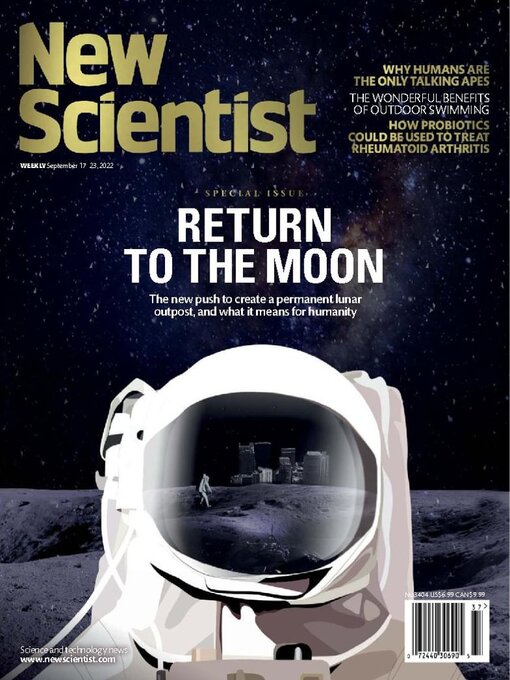
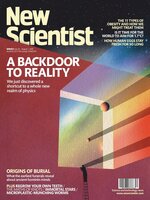 Jul 26 2025
Jul 26 2025
 Jul 19 2025
Jul 19 2025
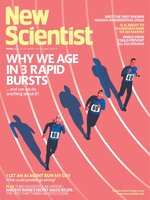 Jul 12 2025
Jul 12 2025
 Jul 05 2025
Jul 05 2025
 Jun 28 2025
Jun 28 2025
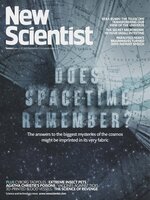 Jun 21 2025
Jun 21 2025
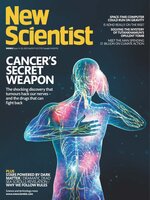 Jun 14 2025
Jun 14 2025
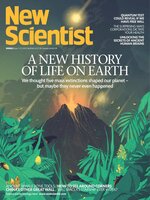 Jun 07 2025
Jun 07 2025
 May 31 2025
May 31 2025
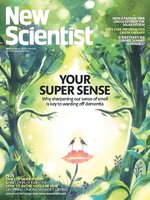 May 24 2025
May 24 2025
 May 17 2025
May 17 2025
 May 10 2025
May 10 2025
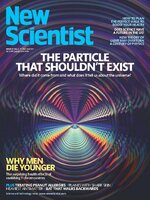 May 03 2025
May 03 2025
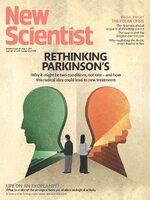 Apr 26 2025
Apr 26 2025
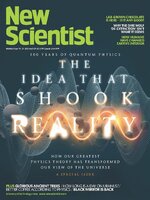 Apr 19 2025
Apr 19 2025
 Apr 12 2025
Apr 12 2025
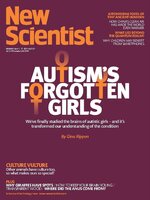 Apr 05 2025
Apr 05 2025
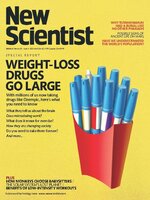 Mar 29 2025
Mar 29 2025
 Mar 22 2025
Mar 22 2025
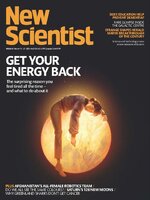 Mar 15 2025
Mar 15 2025
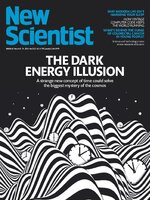 Mar 08 2025
Mar 08 2025
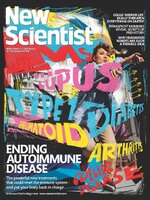 Mar 01 2025
Mar 01 2025
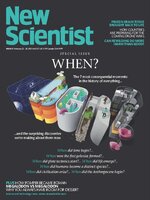 Feb 22 2025
Feb 22 2025
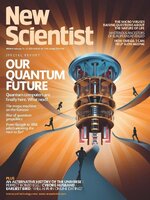 Feb 15 2025
Feb 15 2025